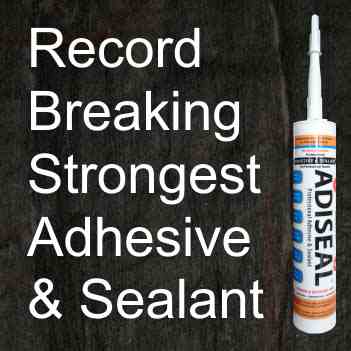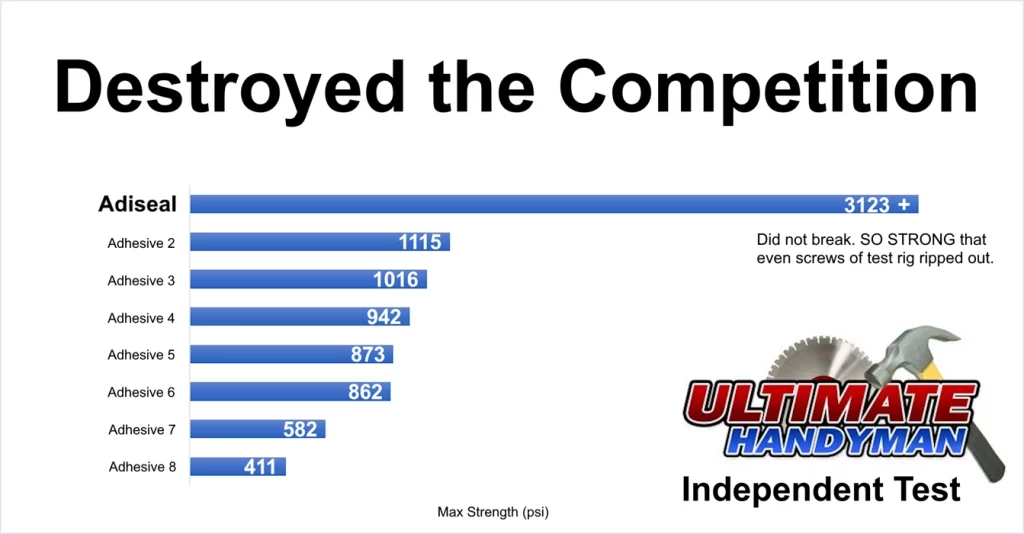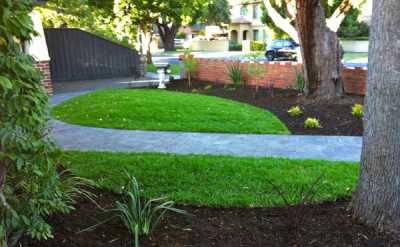Adhesive for Artificial Grass
ADHESIVE for ARTIFICIAL GRASS | Strong, Waterproof, Flexible
When carrying out artificial grass installation, Adiseal adhesive & sealant is a great product to use as an artificial grass adhesive, especially to glue to concrete. This article will look at how to lay artificial grass, artificial grass installation & why Adiseal is a great adhesive to glue artificial grass.
Why Adiseal is the best adhesive for artificial grass
The reason why Adiseal sealant & adhesive is a great product when used as an artificial grass adhesive is because Adiseal is:
- Proven strongest adhesive by an independent test
- Stays permanently flexible
- High gap fill
- Single component, no mixing required
- Works in dry, wet & even underwater
- Seals instantly & stays waterproof sealant
- Waterproof adhesive
- UV resistant
- Resists mould growth
- Solvent free
- Isocyanate free
- EC1 Plus certified
- Provides additional cushioning

Strongest Adhesive
Adiseal has proved to be the strongest adhesive in an independent adhesive strength test by Ultimate Handyman. In the test Adiseal was over 3 times stronger than the nearest competitor. Further details of the test are on the Adiseal page.

In fact Adiseal was so strong, that the screws holding the test rig down started to rip out forcing the test on Adiseal to be stopped. The video of the test is below. You can also go to YouTube to watch it..
Stays permanently flexible
Adiseal stays permanently flexible meaning it will not become brittle. With temperature changes, items expand & contract. With this expansion & contraction, products that are not flexible become brittle and will crack which will weaken the bond. This is not a problem with Adiseal sealant & adhesive as it stays flexible.
High gap fill
As Adiseal is a high gap fill adhesive, it will successfully glue artificial grass even there is a big gap between the artificial grass and the surface it is being stuck to. When Adiseal is being used to glue artificial grass to concrete there is no need to seal the concrete prior to applying the adhesive. When other liquid products are being used to do this, sealing of the concrete will be required as concrete is a porous material.
Single component
Adiseal is a single component adhesive meaning it can be applied directly straight from the tube without the need for mixing. Other products can be in 2 components. These 2 component products require careful measuring & mixing to get the best results when trying to glue artificial grass.
Works in dry, wet & even underwater
As Adiseal works in dry, wet & even underwater, it is possible to carry out an emergency repair even if it’s raining outside when carrying out artificial grass maintenance.
Seals instantly
Adiseal is also a great sealant as well as the strongest adhesive. Adiseal also seals instantly even in wet conditions.
UV resistant
If the product is not UV resistant, there is a high chance it will fail very quickly. An outdoor garden is one of the main areas of a property where it will receive high UV radiation from the sun.
Solvent free
As Adiseal is solvent free, it does not shrink once applied. This is a common problem with other products. For these other products to cure, the solvent have to evaporate away, causing the product to shrink and come away from the surface it has been applied to. Cheaper products tend to have more solvents leaving a weaker bond than Adiseal.
Another problem with solvent based adhesive & sealants is that the solvents will attack sensitive materials like polystyrene which is a common insulation material in building roofs, walls & other places.
How to lay artificial grass on concrete
Adiseal is the strongest adhesive when gluing artificial grass to concrete. When looking at how to lay artificial grass, the following steps are required:
How to lay artificial grass on concrete
- Work out area of artificial grass required
Work out the area of the garden where the artificial grass will be installed. If the garden is not a regular rectangle, then work out smaller areas and add them together.
- Add 10%
When ordering the artificial grass, some people add at least an extra 10% for cuts & wastage.
- Layout
Try to minimise the number of joints. This will allow a better finish, reduce the maintenance & reduce the chance of the artificial grass peeling off the surface.
- Clean area
Before laying the artificial grass on the concrete, thoroughly clean the area where the artificial grass will be installed. Thoroughly brush away any dust. Using a fine brush like a paint brush can help remove fine dust. Adisolve is the ideal product to use to help remove oil, grease, tar, chewing gum old adhesive & many other stubborn deposits.
- Remove weeds
It is recommended to spray some strong weed killer in the whole area where the artificial grass will be installed.
- Underlay
If using a shock pad underlay, it is recommended to use a strong underlay. Some cheaper weak foam underlays will tear apart if the artificial grass is pulled. Even if the strongest artificial grass adhesive is used, the bond is only as strong as the weakest material or surface it is stuck to.
- Apply adhesive
Apply the adhesive in thin strips distanced apart so that rainwater can run between the gaps instead of building up between the artificial grass adhesive.
- Wait for adhesive to cure
Adiseal can take 24 to 48 hours to fully cure. Avoid walking on top of the installation until the adhesive cures.
Clean concrete surface thoroughly
When sticking artificial grass to concrete, making sure the concrete surface is thoroughly clean will provide the strongest and longest lasting bond. On concrete that is outside, dirt can build up which can stick to the concrete and won’t simply brush away. Applying an adhesive directly on top of this dirt will not provide the best bond. Simply brushing away loose debris and dust from the concrete is not sufficient. To remove the dirt thoroughly, it is recommended to use a jet wash or sand blast the concrete. You can also use a water and detergent mix, together with a stiff brush to help remove the dirt. Thoroughly rinse the area after cleaning.
Artificial grass types
Adiseal is a great adhesive for artificial grass, synthetic grass & fake grass. It will successfully glue artificial grass to concrete whether you are sticking an artificial grass mat, carpet or tiles. As well as Adiseal being a great concrete adhesive, allowing the artificial grass to be stuck on concrete, it will also provide a very strong bond to other surfaces as well.

Underlay for artificial grass
It is recommended to use an underlay for artificial grass. There are many different types of underlays available. A good quality waterproof underlay is recommended:
- Underlays for artificial grass that are not waterproof will soak up rain water. This will eventually go & start to smell as well as damage the artificial grass.
- An underlay with holes to allow rain water to seep through instead of the rain water sitting on top of the underlay.
- A good quality solid underlay. Cheaper foam underlays may tear if the artificial grass is pulled.
Where to buy
In the UK, Adiseal products can be purchased from Adiseal stockists. Please contact us for details of your local stockist. For other countries visit www.guglue.com
Frequently asked questions about artificial grass adhesive
Yes, a good quality underlay for artificial grass will provide a softer feel when walking on the grass. A good quality underlay for artificial grass is recommended. Cheaper foam underlays may tear when the grass is pulled. In this case the adhesive will be stronger than the underlay.
Adiseal can take 24 to 48 hours to fully dry. In colder temperatures this cure time can increase. It is recommended not to walk on the artificial grass until the adhesive has fully dried.
Yes Adiseal will stick synthetic grass, fake grass as well as artificial grass mat, artificial grass carpet, artificial grass tiles.
